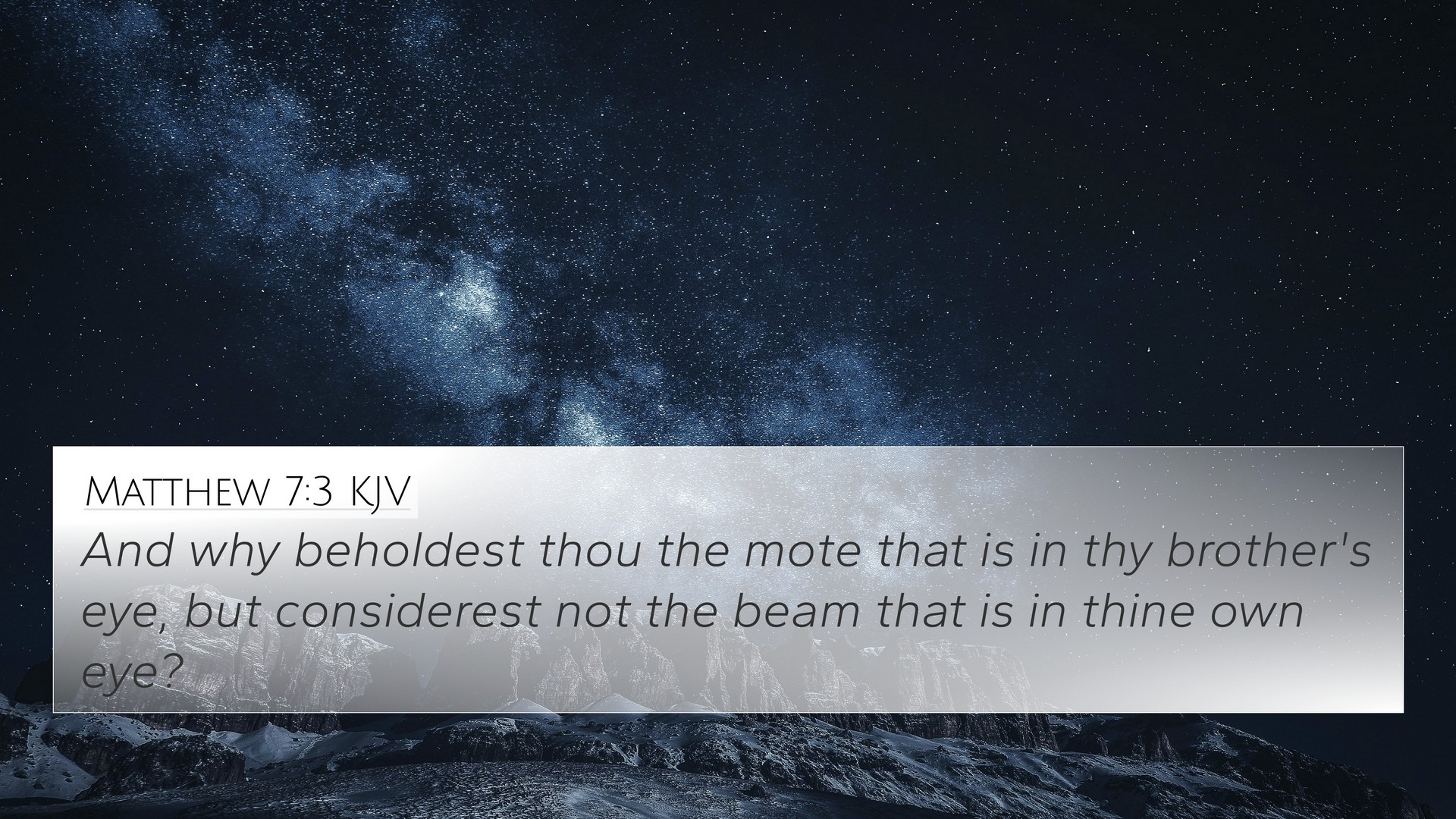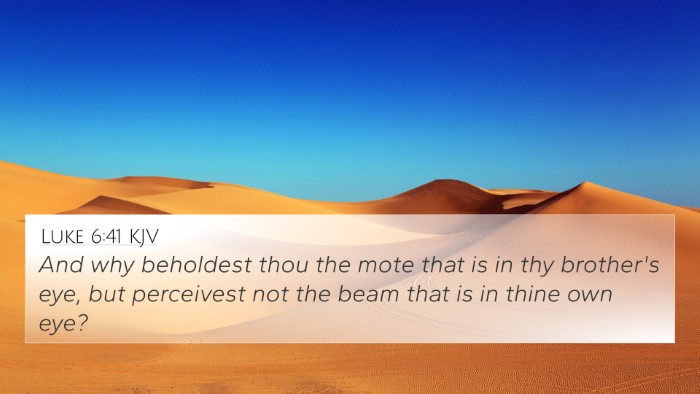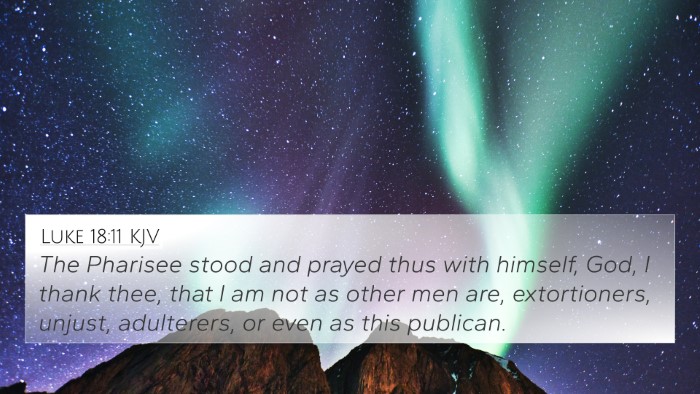Understanding Matthew 7:3
Matthew 7:3 states, "And why beholdest thou the mote that is in thy brother's eye, but considerest not the beam that is in thine own eye?" This verse invites us to reflect on our judgments of others while challenging us to recognize our own faults.
Verse Meaning and Interpretation
The core message of this verse addresses the hypocrisy often found in human judgment.
Matthew Henry emphasizes that one should be more concerned with their personal shortcomings before criticizing others. He points out that a "mote" is a small speck, whereas a "beam" represents a significant flaw, thus showcasing the irony of focusing on minor issues in others while ignoring major issues in oneself.
Albert Barnes elaborates on this by suggesting that Jesus is teaching the principle of humility. When we recognize our faults, it promotes a spirit of forgiveness and mercy toward others. This humility is essential for any genuine interaction and relationship among believers.
According to Adam Clarke, the rhetorical question posed in this verse serves to make us aware of our moral responsibilities. Clarke implies that before we approach others to admonish them, we must engage in self-reflection and correction.
Cross-References
To deepen our understanding, we can explore various cross-references relating to Matthew 7:3:
- Luke 6:41-42 – A similar teaching on judging others.
- Romans 2:1 – A call to refrain from judging others while being guilty of the same faults.
- Galatians 6:1 – Encouragement to restore others gently, considering one's own vulnerability.
- James 4:11-12 – Advisement against speaking against one another, as there is only one Lawgiver.
- Matthew 5:7 – Blessed are the merciful, as they will be shown mercy.
- John 8:7 – The principle of sin and judgment reflected in the story of the woman caught in adultery.
- Proverbs 21:2 – A reminder that every way of a man is right in his own eyes, but the Lord weighs the heart.
Thematic Connections
The theme of self-examination runs throughout Scripture. Matthew 7:3 serves as a pivotal passage that connects to numerous others that promote humility, mercy, and self-awareness. In approaching God's Word, we see many Bible verse parallels that reinforce this message.
Understanding these interconnections illuminates the core teachings of Jesus and the consistent call for introspection across both the Old and the New Testaments.
Using Bible Cross-References
For those exploring the concept of self-reflection in the Bible, utilizing tools for Bible cross-referencing can significantly enhance your study.
Resources such as a Bible concordance or a cross-reference guide can provide a more comprehensive understanding of the Scriptures.
When engaging in cross-reference Bible studies, consider linking relevant verses together to draw out themes.
For example, when studying Matthew 7:3, one could analyze how the themes of mercy in Matthew 5:7 and the love for enemies in Luke 6:27-28 connect with the call for inner scrutiny.
Conclusion
In summary, Matthew 7:3 is a profound reminder of the importance of examining ourselves before we point out the flaws in others.
This multifaceted verse encourages believers to foster humility and mercy, promoting a more compassionate community. As we engage with Scripture, let us commit to understanding connections between Bible verses and cultivating a spirit of grace and self-awareness in our interactions.
Further Reflections
- How do our perceptions of others reflect our inner selves?
- What practical steps can we take to self-correct before offering counsel?
- How do these teachings impact our relationships both in the church and beyond?









